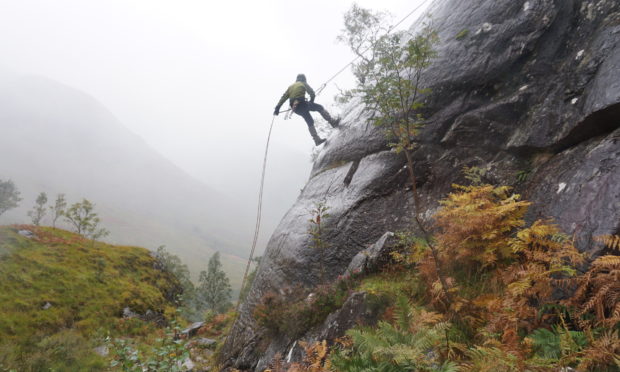Climbers say a new study showing the low Covid-19 risk in Scotland’s hills is evidence any return to restrictions on walking and climbing would not be appropriate.
An international scientific paper on the impact of the virus on mountain sports concluded there is no evidence of anyone becoming infected pursuing these activities and that the risk is low.
Three members of Mountaineering Scotland worked with researchers from Europe and North America on the study that has been passed to the Scottish Government.
The authors argue the low risk means people can safely take part in mountain sports subject to “common sense” measures such as social distancing and not sharing equipment, vehicles or confined spaces.
However, they say mountain activities were severely curtailed by government restrictions during the first wave of the pandemic and there are concerns similar curbs could be imposed in future.
They suggest a less restrictive approach could be taken due to mountain sports’ effect on peoples’ physical and mental health.
The draft paper says airborne transmission risk is reduced or removed by outdoor breezes and keeping distance from others, while it is increased in poorly-ventilated indoor areas.
One of the authors, Aberdeen-based climber Simon Richardson, a past-president of the Scottish Mountaineering Club, said: “This is what we all thought, but a scientific study turns opinion into something with a lot more substance.
“Covid is going to be around for some time and we need to act appropriately, but it’s not appropriate to shut down all aspects of life. I don’t think stopping people going into the hills will make a significant difference and probably will cause more damage in the long run.
“So you need to have a balance and allow appropriate freedoms where possible.”
Mountaineering Scotland said the report confirms the importance of mountaineering activities for health and wellbeing and people should be allowed to continue to travel to the hills.
CEO Stuart Younie said the report provides reassurance to walkers and climbers: “This doesn’t mean that we can be complacent however. We all have to remain vigilant and follow the guidance to help keep ourselves and others safe.”
A Scottish Government spokesman said: “Access to outdoor spaces can help improve our physical, social and mental health. Since March we have seen a significant change in people’s attitude and interest in walking and outdoor adventure sport throughout Scotland.
“However it is important that people follow all up to date travel advice for their area, and at all times follow Facts when in public spaces.”
